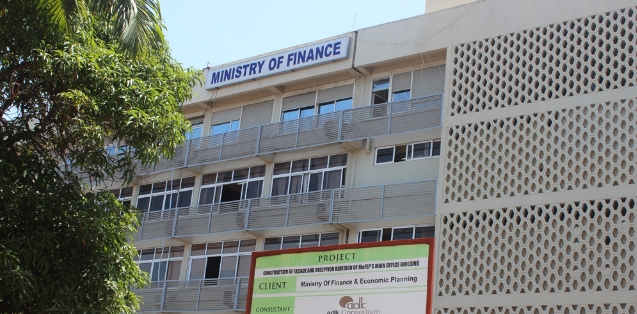Economist, Dr. Priscilla Twumasi-Baffuor, has admonished policymakers to begins negotiation with the International Monetary Fund to ensure the country does not return to the current economic situation.
According to her, the dire economic situation the country finds itself in is as a result of unimproved economic structures and fundamentals which have failed to meet the ever increasing demands of the country’s fiscal space.
She noted that till policymakers make the effort to address adequately the issue of poor fundamentals and economic structures, the IMF programme will do very little to improve the current situation.
Speaking on JoyNews’ Newsfile on Saturday, she said, “Indeed the structure of the economy is not changing, the fundamentals consistently remain the same, but it appears that we consistently hope for the better. Rightfully, we should.
“But I believe that policymakers ought to get to work as we enter into this programme and also moving forward so that indeed, this is our 17th time, we don’t find ourselves in the situation we find ourselves in right now.”
Dr. Twumasi-Baffuor also advised that while debt restructuring is inevitable and may lead to losses, the government must ensure that households are insulated from the adverse possible effects that may occur as a result of the restructuring.
She said, “So in terms of debt restructuring, the loss could come in the form of government negotiating with debt owners that they would have to probably cut down on debt interest rates.
“The restructuring should be done in such a way that households are insulated from the adverse possible effects that will happen, and given that the Finance Minister has also committed to a robust financial sector, we are quite keen to come out with the innovative ways in which government would want to restructure the domestic debt.
“It possibly could come with a negotiation in terms of extension of maturities which is also something that is done. So if your bonds or treasury bills are due next month, government could renegotiate with you to pay in two months and possibly not pay the interest rate at the time. All these are avenues that exist.”
“But as we go through all these we need to be careful that households incomes are protected particularly given that in Ghana we struggle with lot of Ponzi schemes in the financial sector. If people have confidence in government and they have invested in government I believe that the responsibility is on government to protect their savings and for that matter I’m quite passionate about the households component, individuals, in terms of who are the owners of the debt in the domestic bundle,” she added.
Latest Stories
-
KNUST appoints Kwasi Debrah as Digital Communications Officer
25 minutes -
Volta Region to receive fair share of appointments in Mahama’s gov’t – V/R NDC Chairman
32 minutes -
Timely and strategic approach to revitalise Ghana’s agricultural sector is needed – Klutse Kudomor
35 minutes -
Fuel supply, financial challenges top priorities for energy sector – John Jinapor
40 minutes -
We won’t engage in sole sourcing for ECG private sector participation – Energy Minister-designate
46 minutes -
Photos from John Jinapor’s vetting for Energy Minister role
60 minutes -
Public procurement and corruption in Ghana: Challenges and sustainable solutions
1 hour -
Seize campaign activities, work on rebuilding party – NPP Council of Elders tells members
1 hour -
We don’t intend to privatise VRA and Bui Power – John Jinapor
2 hours -
Import substitution strategies in the 24-Hour Economy: A catalyst for Ghana’s practical economic growth
2 hours -
Chamber of Aquaculture urges President Mahama to nominate a Minister with agribusiness expertise
2 hours -
Energy Minister-designate sets 6-months for ECG private sector involvement framework
2 hours -
Mahama should scrap deputy ministerial position for tourism
2 hours -
Global economy remains resilient, to grow by 3.2% in 2025 – OECD
3 hours -
I’ll focus on the development of the real sector – Dr Ato Forson
3 hours

